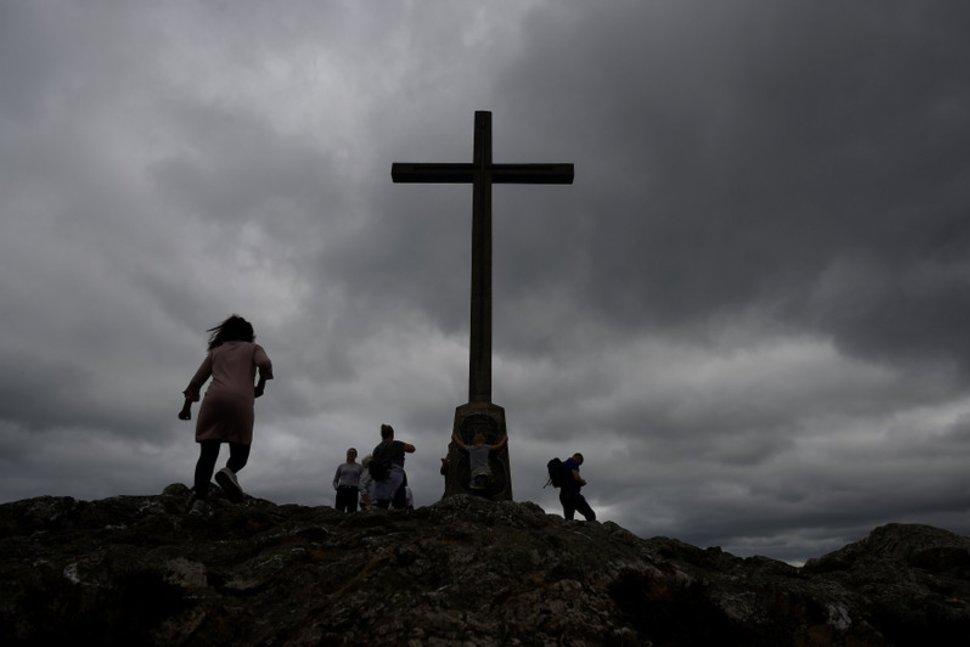|
Irish Abuse Survivors Await Pope's Arrival With Scepticism
By Padraic Halpin
Andrew Madden became the first victim of clerical child sex abuse in Ireland to speak out publicly in 1995 when he detailed how, as a 12-year-old altar boy, he suffered two-and-a-half years of abuse at the hands of his parish priest. Over the next 15 years floods of similar stories followed as harrowing state investigations unearthed endemic sexual abuse and cover-up that rocked the church's standing in the once staunchly Roman Catholic country. When Pope Francis makes the first papal visit to Ireland in nearly 40 years this weekend, Madden, a Dubliner, will be a long way away. "I did not want to be here and watch a load of people flag-waving after all this church has done. To see that institution being cheered on when there are so many unanswered questions, I would find it sickening," said Madden, who will be in Rome when the Pope addresses an expected 500,000 people in Dublin on Sunday. "I don't have any expectations of the pope telling the truth about what the Vatican knew and its knowledge of all that was covered up. It has had plenty of time to respond appropriately to what's happened in this country and elsewhere." Many abuse survivors share Madden's scepticism, according to campaigners, and have been angered that the issue of abuse - which in Ireland extended to the treatment of women and girls in the notorious Magdalene Laundries and Catholic-run mother-and-baby homes - is not front and center in the pope's plans. When the Archbishop of Dublin, Diarmuid Martin, said earlier this month that "time was very tight" for Pope Francis to meet survivors of church abuse during his two-day visit, there was a furious reaction from those who had suffered. The Vatican says it does not put the pope's meetings with victims of sexual abuse on his schedule for trips. When he has met victims of abuse during trips, such as in Chile in January and in Philadelphia in 2015, they were announced shortly after they ended. Vatican spokesman Greg Burke said: "These are often intimate, soul-searing meetings that can produce tears on both sides. The pope wants to respect their privacy and then victims can talk about it later if they wish. Not all victims want something public, and, if a meeting takes place, those who prefer that the contents remain private should not be excluded." The pope does not, as a rule, meet victims of clergy sexual abuse on every trip abroad. However campaigners in Ireland say they fear any such meeting will be a token gesture. Marie Collins, a clerical abuse survivor who has spent the last 20 years campaigning for reform, said the pope should meet a representative group of survivors who will challenge him to take concrete actions on tackling abuse. "I do feel there was an effort by the church to airbrush the whole issue of abuse out of the picture during the pope's visit because it might be an unpleasantness. When the suggestion was made that there wasn't enough time, there was huge anger amongst survivors, including myself," Collins said. "It shows how really in the church there is this view of abuse as something that if we ignore it, it will go away and if we don't talk about it, it's not happening. That couldn't be allowed to stand." TOO LITTLE, TOO LATE The issue of abuse has come into greater focus ahead of the visit after a grand jury report last week detailed 70 years of widespread abuse by hundreds of priests in Pennsylvania and a systematic cover-up campaign by bishops. Responding to simultaneous sexual abuse crises in several countries on Monday, Pope Francis wrote an unprecedented letter to all the world's Catholics promising that no effort would be spared to prevent abuse and its cover-up. Collins said no survivor would have been surprised by what they read in the Pennsylvania report, but it still brought back memories of her own abuse by a hospital chaplain in 1960s Ireland that triggered 25 years of depression and panic attacks. She intends to spend next Sunday with other survivors, their families and supporters at an event at a central Dublin memorial garden organized by fellow campaigner Colm O'Gorman. O'Gorman, who was 13 when Pope John Paul II came to Ireland in 1979 and was raped by a priest for the first time a year and half later, says the event, which has attracted the interest of thousands of people on social media, is not a protest but a space for those who need to stand together for solidarity. Whatever message Pope Francis delivers 3 km away when he says mass at Dublin's Phoenix Park will be too little too late, said O'Gorman. "If the Vatican was approaching this issue with integrity, a pope would have come here (15 years ago) and not just kissed the ground when he landed, but gotten on his knees and acknowledged the truth of what has happened in this country and the Vatican's role in it," he said. O'Gorman's abuser committed suicide after he was charged but before he was put on trial. Collins' and Madden's abusers were jailed. For Collins - who was a leading member of a group advising Pope Francis on how to root out sex abuse until she quit in frustration last year - the time for simple apologies has long passed. "Apologies and I'm sorry it happened and that sort of thing is just no longer any use. We've heard that over and over again," Collins said. "We need to know what action he's going to take to hold his own leaders to account for their behavior. It's children's lives that are at stake here, not the reputation of the church."
|
.
Any original material on these pages is copyright © BishopAccountability.org 2004. Reproduce freely with attribution.
